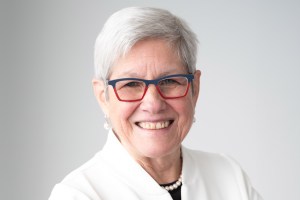Hollywood and health: Harnessing the power of storytelling
Twelve years ago, in a survey of TV viewers who regularly watched the show ER, only 24% had ever heard of human papilloma virus. A week later, after an ER segment on the virus, that figure shot up to 47%.
More recently, a “bubble tweet” (a short online video that can be added to Twitter pages)—an emotional clip about rape in Congo, from an episode of SVU: Special Victims Unit—got a million hits.
Both examples show how television dramas can help convey important information about public health issues, said Neal Baer, M.D. ’96, at an April 13 talk at Harvard School of Public Health. Baer, a pediatrician, is also an award-winning television writer and producer. He’s worked on a number of shows over the past 18 years—including China Beach, ER, SVU: Special Victims Unit, and A Gifted Man.
Baer said both television and new media offer plenty of ways to share stories. The most important thing, he said—whether the venue is television, the web, online articles or blogs, or tweets—is to tell stories about how individual people are affected by public health issues, instead of offering only dry statistics.
“Do journal articles really turn you on?” Baer asked. “Most people, no.” He added, “Most people are turned on by movies, television shows, novels, poems, or music.”




